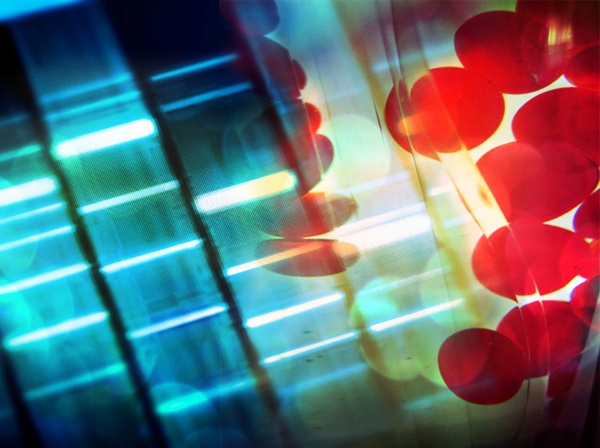
The Kuhn Laboratory of the USC Michelson Center for Convergent Bioscience will work with other institutions to develop the world’s first global liquid biopsy database
Vice President Joe Biden on Monday is expected to announce that the University of Southern California will participate in a new Cancer Moonshot project to create the world’s first global liquid biopsy database on cancer. The undertaking is designed to accelerate the development and approval of simple, accurate and reliable blood tests for biologically-based precision treatment and disease monitoring.
USC and 19 representatives from government, academic, pharmaceutical and diagnostic companies are launching the new partnership to share protocols, data and results to create the Blood Profiling Atlas Pilot. Some of the collaborators include the U.S. Food and Drug Administration, Novartis, Pfizer and the College of American Pathologists.
The Kuhn Laboratory at USC will contribute data from the High-Definition Single-Cell Assay (HD-SCA), an analysis framework that characterizes cancer from a simple blood draw, analyzing the cells, proteins and genes shed from tumors.
“I’m excited to say this is the third USC partnership with Vice President Biden’s Cancer Moonshot initiative to understand the time-space continuum of cancer,” said Peter Kuhn, principal investigator of HD-SCA and a founding faculty of the USC Michelson Center for Convergent Bioscience. “For the Blood Profiling Atlas, our focus is to characterize cancer by identifying the proteins and genes in single cells found in simple blood draws taken from cancer patients. We are contributing data and methods to start and will work with the partners in the Atlas to design and execute future pilot projects in support of the Atlas.”
The Blood Profiling Atlas will use standardized methods that would allow the FDA to recognize it as a source of valid scientific evidence. The open but secure database will help accelerate cancer therapeutic research and development, will improve a doctor’s ability to track cancer progression and will improve disease treatment decisions.
The new Cancer Moonshot project will aggregate and make freely available raw datasets from circulating tumor cells, circulating tumor DNA, clinical data as well as the sample preparation and handling protocols from 13 different studies, including USC’s HD-SCA.
USC will share liquid biopsy analyses on more than 100 breast cancer patients, contribute study techniques to inform the design of future Blood Profiling Atlas studies and provide an initial design concept for the Blood Profiling Atlas. USC will also share HD-SCA visualization tools and infrastructure to help the Blood Profiling Atlas team build a user-friendly online database.
HD-SCA produces both images and numerical data. It is a graphical, web-based approach that enables scientists to quickly obtain a subset of image and associated data based on the information filters chosen.
“Our goal with the Blood Profiling Atlas is to provide the scientific knowledge to equip physicians and patients with more information about their disease so they could make better-informed decisions,” said Kuhn, dean’s professor of biological sciences and a professor of medicine, biomedical engineering, and aerospace and mechanical engineering at USC. “Our convergent science initiative in cancer is aimed at providing actionable data to the physician-patient conversation to help achieve better outcomes. The intention is to kick cancer off the top 10 list of killers in the world.”
by Zen Vuong